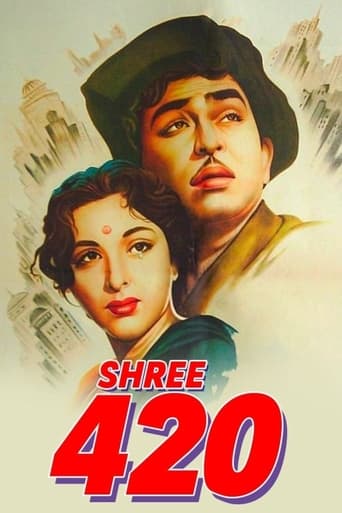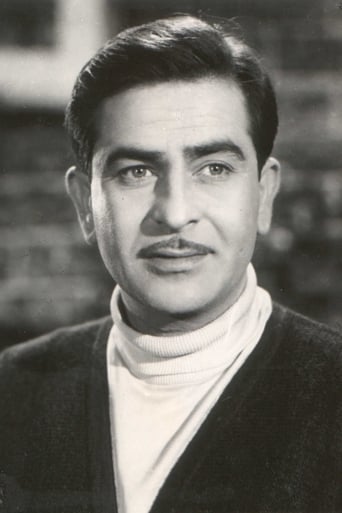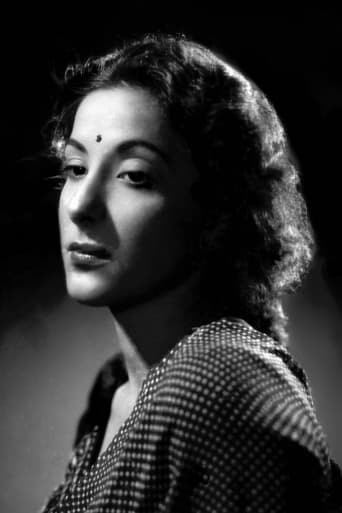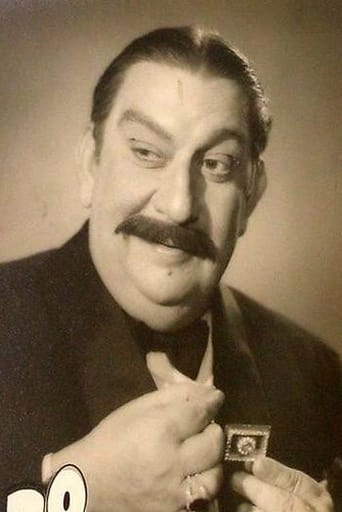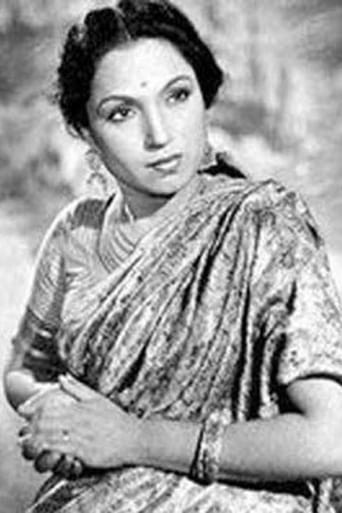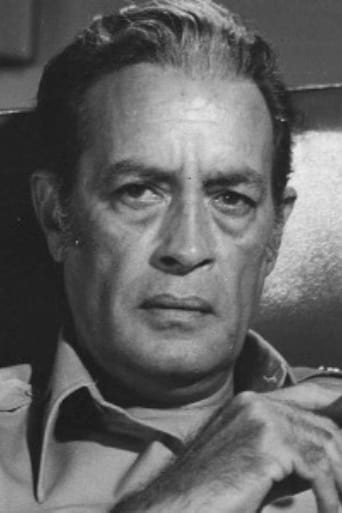Peter Young
Raj Kapoor's social dramedy "Shree 420" is a real classic gem. His character represents the common man who is lost in a world dominated by the rich and famous. This role, in an amazingly dizzy combination of comedy and drama, is unforgettable. He is sad, he is lonely, he does not know what the future plans for him, so he just prefers to forget it all, be cynical and laugh about his misery. He falls in love with a beautiful young woman called Vidya and wants to succeed on his own moral terms, but it's just impossible when the society is cruel. After being introduced to the world of gamblers by a vulgar dancer named Maya where he can use his talent for card manipulation, he decides to use his skills and become part of this corrupted society. When he wants to come back, it's perhaps too late. Such was the lot for simple people of that time.Raj Kapoor makes a fantastic job in terms of acting and directing. As a director, he pays attention to details and makes sure all the required elements of the film are done realistically. As an actor, he delivers a terrific performance. His comic timing is top-notch, his pain is well evident, and he makes his character's transformation from a simple funny guy to a sophisticated gambler to a serious and unhappy businessman brilliantly. Nargis, as his beloved Vidya, is just splendid. She is presented as the epitome of goodness, Indian female beauty, purity and modesty. She was a superb actress by every possible standard of judgement, and in this film, too, she is incredibly graceful, natural and believable. Note the scene when Vidya visits the casino along with Raj and is later publicly humiliated by Nadira's Maya. She starts crying quietly and ashamedly, while Raj looks at her, unable to say a word. It's a wonderful scene, brilliantly acted and executed. It goes without saying that Kapoor and Nargis had the most powerful on-screen chemistry of their time.The movie includes a host of great character actors enacting their parts with conviction. The glorious Lalita Pawar stands out as Gangamai, a lovable woman who is a mother figure to the entire street and to Raj in particular. Pawar exudes a warmth that makes it easy to understand why she is so loved by the people in the movie, and her interaction with Raj is very well portrayed. This is one of the famous roles of Nadira, and she really does a good job as Maya, the total opposite of Vidya (also in their symbolic names). Her vicious expressions, sharp line delivery and the way she stylishly smoke her cigarettes in a holder, created the ultimate vamp of the times, reminiscent of the many characters played by Bette Davis. Nemo is also very well cast as Sonachand Dharmanand. Hari Shivdasani is excellent as Vidya's father.I liked the realistic portrayal of life in urban Bombay of the 50s. Kapoor conveys the irony of the big city very well. Street beggars appear to have more knowledge in life than the so-called elite people; people sell more than they buy in order to survive the next couple of days, even if it means they have to cede their most precious assets; street dwellers feel they own these very streets just because that's where they sleep, and everyone is in search of money, because money runs the world. That's where Raj is thrown. He needs money but he can't find a job despite having an academic degree. This forces him to steal and lie, compromising his core values. But if you do it, you are a swindler and get branded "420" by the so-called reputable citizens, most of whom are mere phonies and are the real thieves of society, who try to turn the poor people into scapegoats so that they can hide their own crimes. A paradox that is both funny and sad, because it's real.The film's soundtrack, composed by Shankar-Jaikishan, is considered to be an all-time classic, and rightfully so. Apart from the movie's signature song "Mere Joota Hai Japani", my favourite numbers are "Pyar Hua Ikrar Hua" and "Ramaiya Vastavaiya" which are not only melodious and memorable but also very beautifully pictured in the film, efficiently representing the contradictory moods and states of mind of the lead pair. The former shows their dreams and hopes of forming a happy family life together, and the latter presents their sadness and loneliness on parted ways, while in the backdrop the street people are singing and dancing, still holding hope for a better day. I cannot forget the heartbreaking moment showing Nargis's Vidya sitting serenely and teary-eyed on her home's pavement, softly singing the poignant lines of the song. At the same time it shows Kapoor's pain of losing his own self upon seeing his old friends, yearning to come back to his previous, poor but happy life.That was Kapoor's way of perceiving the art of cinema and life in general, I believe. Through this movie and his character he shows us that laughing at yourself, making fun of common social diseases, switching masks from sad to happy and vice versa in order to see this crazy world from a clearer perspective, is the best way to go. That's one of the aspects that make this film so thoroughly fascinating and entertaining, and apart from its socially relevant message, it has a wide range of emotions and memorable moments which make it the classic that it is. The ending is fantastic, ultimately showing us that it actually is possible to live a decent life and not lose yourself, and more than anything, change the world. "Shree 420" has it all, superb comedy, powerful drama, charming romance, great music. It is full of hope, love and optimism, and can be easily described as not only one of Raj Kapoor's best, but also one of Indian cinema's finest.
VirginiaK_NYC
Based on some Internet research on the best of Bollywood, and on a lifelong crush on Raj Kapoor's brother Shashi, this was the first Bollywood movie I sought out at an Indian video store, and it completely blew me away. If you want to start to get to know the greatness of this cultural tradition, this is a good place to start, and I recommend watching it thirty times. It is still my favorite after some months of searching out Bollywood classics.This movie provides a sublime pathway to love of Bollywood; for one thing the music is completely enchanting, beginning with the first song, sung by Raj Kapoor in his role as a university- educated ("B.A. passed") young country fellow garbed as a hobo on his way to Bombay--he sings his song of the road about "My shoes are Japanese, my trousers are British, my red hat is Russian, but my heart is Indian" --Mera juta hai Japani, etc. I do not speak Hindi and I have had to memorize it. I think some westerners may believe that the music of Bollywood movies will be a stumbling-block, but see if you still think that after you see this one. The songs are compelling and varied, the lyrics elaborate story elements, with the additional pleasure of being Indian or non-Western or whatever in their sentiments. Raj Kapoor's brilliant physicality and body language alone make the movie a joy.It also provides the pleasures of screen romance with powerful chemistry (between Raj Kapoor and the great star Nargis, his real life inspiration and beloved), and of movement into the nightclub world of the rich and glamorous, and the opportunity to see the spectacularly handsome Raj change from a foolish-acting tramp/clown to a worldly charmer in a dinner jacket (even though this spells temporary trouble for the forgotten and virtuous Nargis).~Virginia
